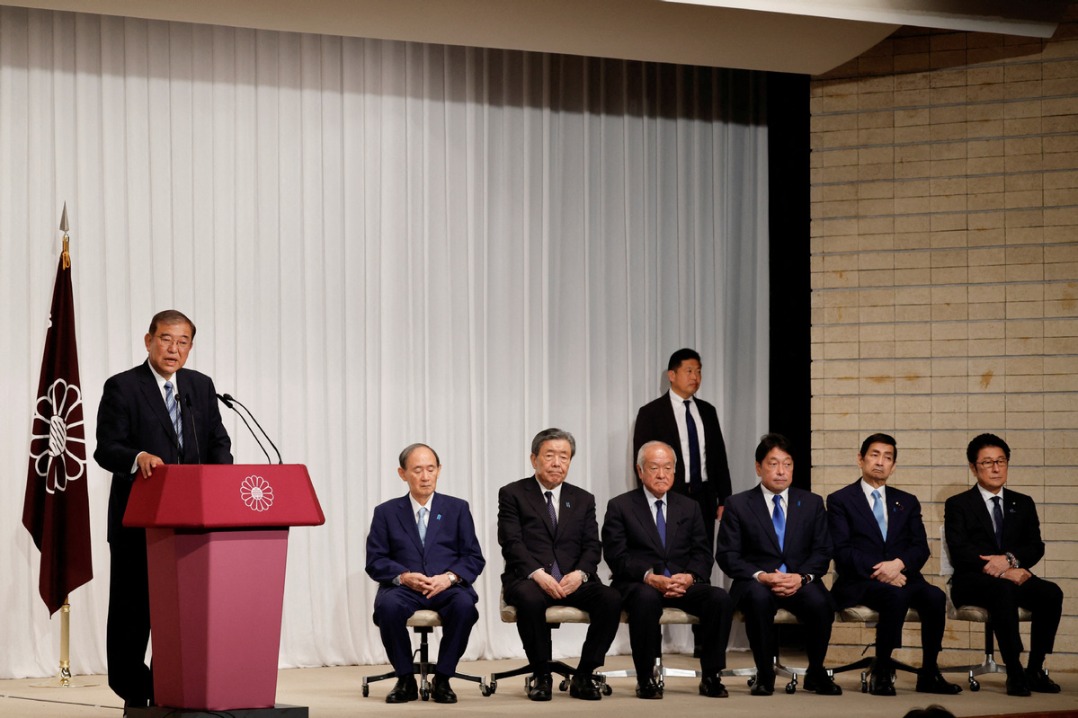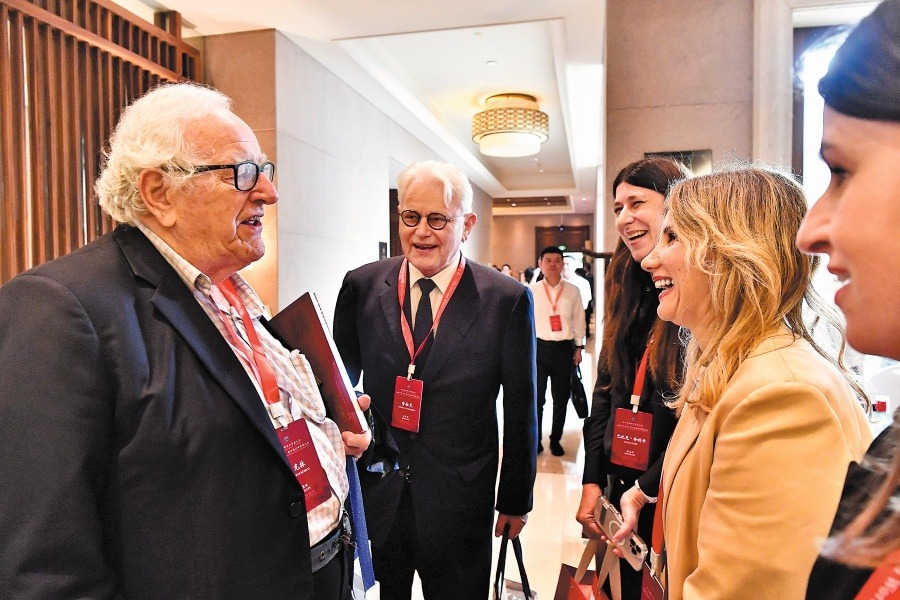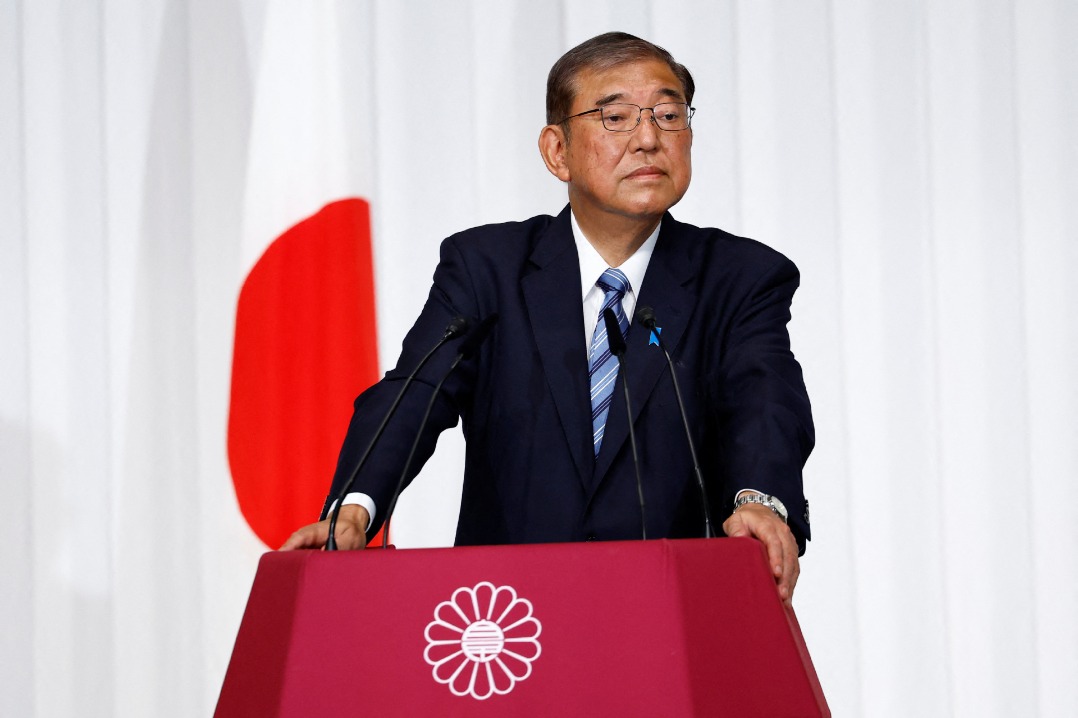EU to hit Chinese BEVs with huge import tariff
Chinese Chamber of Commerce to EU says protectionist move may hit China-EU trade

The European Commission announced on Wednesday that Chinese-made battery electric vehicles, or BEVs, will soon be subjected to punitive countervailing tariffs, after the conclusion of the bloc's anti-subsidy investigation launched in October.
The commission said it "has provisionally concluded that the BEVs value chain in China benefits from unfair subsidization, which is causing a threat of economic injury to EU BEV producers".
"The investigation also examined the likely consequences and impact of measures on importers, users and consumers of BEVs in the EU," the commission said in its announcement.
According to the commission, countervailing duties vary depending on the brands. The first provisional decision includes a 17.4 percent tariff on BYD, 20 percent on Geely, and 38.1 percent on SAIC.
The new tariffs will come on top of the existing 10 percent import tariffs faced by all non-EU BEV makers.
The commission said it had reached out to Chinese authorities to discuss its findings and explore possible ways to resolve the issues identified in a WTO-compatible manner.
"Should discussions with Chinese authorities not lead to an effective solution, these provisional countervailing duties would be introduced from July 4," the commission said.
In a statement on Wednesday, the Chinese Chamber of Commerce to the EU, or CCCEU, expressed "its shock, grave disappointment and deep dissatisfaction with the protectionist trade measure" by the European Commission.
"Regarding the provisional countervailing duty rate of up to 38.1 percent to be imposed by the EU, the CCCEU believes these measures will seriously impair the legitimate rights and interests of BEV companies and exert negative impacts on China-EU trade and cooperation in the automotive sector," it said. "Furthermore, the chamber expresses serious concern and apprehension that the spillover effect will present challenges to China-EU economic and trade relations, as well as bilateral relations."
According to a recent survey of the Chinese BEV industry conducted by the CCCEU, the imposition of a 10 percent additional levy would already carry significant implications for most Chinese car manufacturers, resulting in a substantial negative impact on their exports to Europe.
The rates spanning from 17.4 percent to 38.1 percent will pose a serious market barrier, the CCCEU said.
Despite China's dominance in the global BEV production and sales market, exports of BEVs to the EU accounted for only about 5 percent of China's BEV production in 2023. And the exports primarily comprised European and United States brands that manufacture in China. The market share of China's own BEV brands in the European market has consistently remained lower than that of local European companies, according to the CCCEU.
The organization said the EU's self-initiated investigation into China's BEV industry was politically motivated and driven by protectionism, lacking substantive and substantial complaints from its domestic industry.
"In contrast, numerous European industry representatives have voiced concerns regarding the investigation, citing potential negative impacts on Chinese and European BEV supply chains, innovation, and market cooperation," the CCCEU said. "The chamber, along with the Chinese car industry, resonates with these serious concerns."
Carl Bildt, co-chair of the European Council on Foreign Relations and a former Swedish prime minister, said on X on Wednesday: "I'm not too worried by what is said to be Chinese EV subsidies – if they want to subsidize the EU green transition, which really needs to speed up, then it's okay with me."
David Henig, UK director of the Brussels-based European Center for International Political Economy, said, also on X, that the tariffs seemed to be aimed at helping the EU's manufacturers catch up.
"In essence, the real purpose of EU tariffs is giving the domestic industry a few years to become closer to competitive as the Chinese industry or to receive investment from them. Yes there are subsidies, but so there are everywhere. China started on EV way earlier," he wrote.
China's Minister of Commerce Wang Wentao refuted the "unfair competition" accusation made by the EU and the US and called it groundless during a recent trip to Europe. He said some countries are implementing high tariffs, discriminatory subsidies, investment restrictions and unilateral sanctions that contravene World Trade Organization rules with the aim of excluding Chinese companies from their markets.
"This is not fair competition at all," Wang said.
Several German ministers have also voiced concerns about the European Commission's move.
Germany's Federal Minister for Digital and Transport Volker Wissing said imposing tariffs on Chinese electric vehicles to protect the European industry would be the "wrong approach" to promoting international competition.
And Germany's Minister of Economy Robert Habeck, also a vice-chancellor of the nation, warned of damage to the EU's interests through tough tariffs against China.
Germany's car industry association VDA has in the past months warned the European Commission of a Chinese backlash over the tariffs. The VDA has criticized the European Commission for failing to coordinate sufficiently with the German government.
Hildegard Mueller, president of the German Association of the Automotive Industry, told China Daily a month ago that VDA does not support the European Commission's anti-subsidy probe into Chinese EV companies and that the EU's punitive tariffs on Chinese EVs would not solve the challenges facing the European automotive industry.
"What is needed instead is an active industrial strategy, including an active trade policy," she said.
Erik Solheim, a Norwegian politician and former executive director of the UN Environment Programme, told China Daily last week that the world needs more green products that are affordable and reliable.
"China is doing that. Everyone should compliment China," he said, adding that "it's fantastic news for the world".
He said Europe and the United States should embrace the competition by welcoming Chinese companies to invest there, so they can learn from superior Chinese technology.
chenweihua@chinadaily.com.cn

































